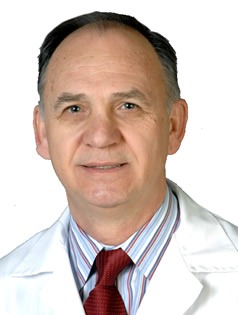_thumb.jpg)
What is dyslipidaemia?
Dyslipidemia is defined as abnormal levels of blood lipids (fats) and cholesterol. The most common dyslipidaemias are high blood cholesterol (Total Cholesterol) and triglyceride levels, high levels of low-density lipoprotein (LDL) cholesterol (‘bad’ cholesterol) and low levels of high-density lipoprotein (HDL) cholesterol (‘good’ cholesterol).
Who does dyslipidaemia affect and what causes it?
Dyslipidemia can affect anyone. Part of it can be explained by lifestyle (diet high in saturated fat, and cholesterol, smoking, lack of exercise). However, genetics can play an important part in dyslipidemia as well.
There is not much we can do about our genetics. Our efforts should be focused on changing lifestyles. By that I mean proper diet, exercise, and maintaining proper body weight and avoid smoking.
What treatments are currently available for dyslipidaemia?
Naturally, lifestyle interventions that include proper exercise and diet, smoking cessation and body weight reduction are advocated by authorities.
There are also a number of medications, of which statins are the most effective.
How effective are these treatments?
Statins are most effective in controlling blood lipids and reducing mortality. They lower LDL-cholesterol and total cholesterol and increase HDL-cholesterol (good cholesterol) to some extent. For those who tolerate statins well, it is the “wonder drug” of recent times.
Please can you outline the recent study into combining statins with better fitness?
We know statins lower mortality. We also know that increased fitness is associated with lower mortality. Therefore we hypothesized that the combination of the two therapies will yield even more favourable outcomes than either therapy alone.
To investigate this hypothesis, we followed over 10,000 veterans with abnormal lipids (dyslipidaemia), over an average period of 10 years and recorded mortality rates. Approximately half of them were treated with statins and the other half not treated with statins.
What did this study find?
The most striking findings of their work are:
-
Those not treated with cholesterol-lowering medication (statins) had a 35% higher mortality rate when compared to those treated with statins.
-
Death rates declined progressively as fitness increased. The reduction was similar for those taking and not taking statins.
-
The combination of fitness and statins conferred the highest protection against premature death. For individuals taking statins, the death rate in the highest fit group was 70% lower when compared to those in the least-fit group.
-
To assess the independent impact of fitness on mortality we compared the least fit individuals on statins to those not taking statins. The death rates declined progressively as fitness increased. Death rate declined by approximately 20% for the moderately fit (7-9 METs), and 50% for the High-fit (>9 METs) individuals.
-
These health benefits can be achieved by engaging in moderate levels of physical activity, such as brisk walking for approximately 30 minutes on most days of the week. This level of exercise is achievable by most people.
What impact do you think this study will have?
We hope that people are encouraged to take up exercise and improve their fitness status by brisk walking or similar activities for approximately 30 minutes on most days of the week. This is regardless of dyslipidaemia, or whether a person is on statin therapy.
How do you think the future of dyslipidaemia treatments will develop?
Advances in genetics will make it possible to design medications that will fit the individual’s genetic profile. These medications will be more effective and have fewer side effects.
Are there plans to study the results of combining drug treatments and fitness in other conditions?
We have considered related questions and are already on our way to examine exercise and drug therapy in other populations such as individuals with type 2 diabetes mellitus, hypertension and obesity.
Would you like to make any further comments?
Physical inactivity is a global health problem. It is an epidemic with harmful outcomes that are similar to those of smoking and obesity. We hope that health care professionals emphasize this to their patients, and encourage them to take up moderate exercise.
But this is not only the responsibility of health care professionals, and not only for patients. Educators, government and society as a whole must explore ways to improve the fitness status of all and especially for the new generation.
As my friend and Colleague Dr. Jon Myers states “Physical activity and its relationship to health is a concept that remains largely overlooked and unappreciated by health organizations, educators, government and the medical community. It has been demonstrated that small investments in promoting fitness or physical activity result in large health benefits and overall health care savings.”
Where can readers find more information?
http://www.thelancet.com/journals/lancet/article/PIIS0140-6736%2812%2961426-3/abstract
About Prof. Peter Kokkinos

-
Professor of Medicine at the Veterans Affairs Medical Centre, Washington, DC, Georgetown University School of Medicine and George Washington University School of Medicine and Health Sciences
-
Fellow of the American Heart Association
-
Fellow of the American College of Sports Medicine
-
Director of the Lifestyle Interventions for Veterans (LIVe) program
-
Director of the Exercise Science and Testing Laboratory
-
Principle Investigators in several studies, NIH and VA grants
Primary clinical and research interests include:
-
Exercise and diet related research in the prevention and treatment of chronic health conditions including cardiovascular disease, hypertension, diabetes, dyslipidemia and obesity
-
Cardiovascular responses to exercise and their clinical significance